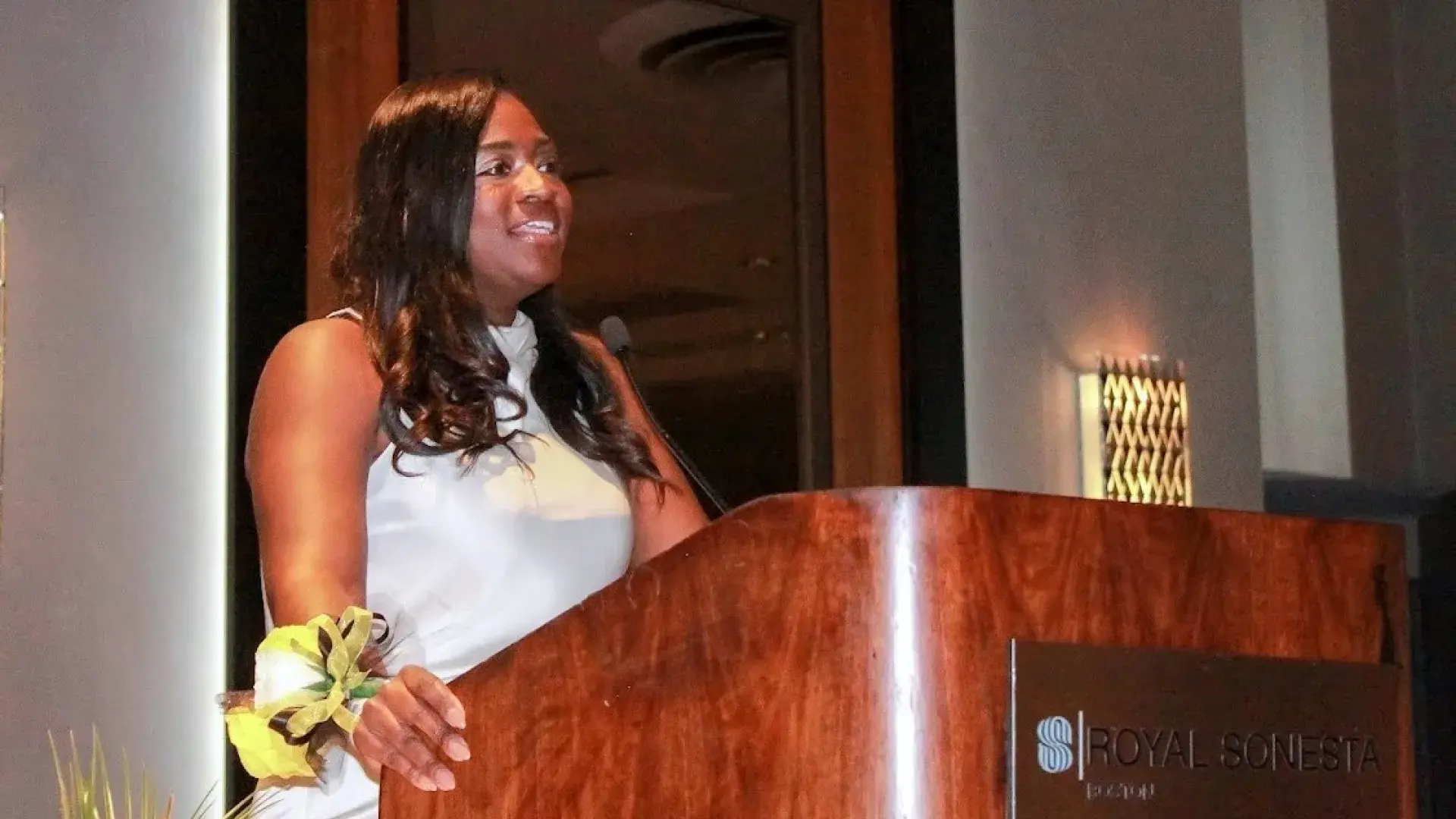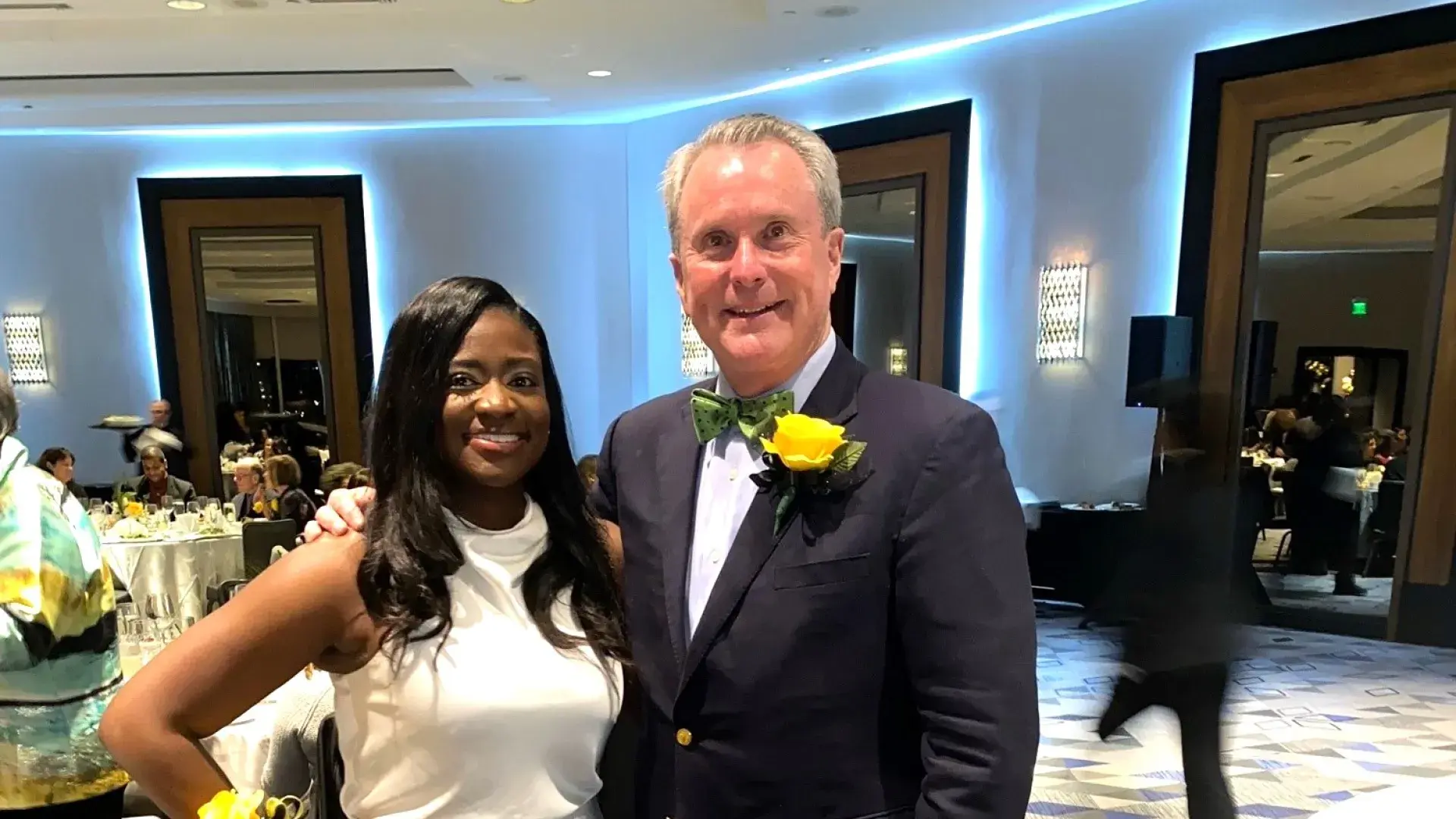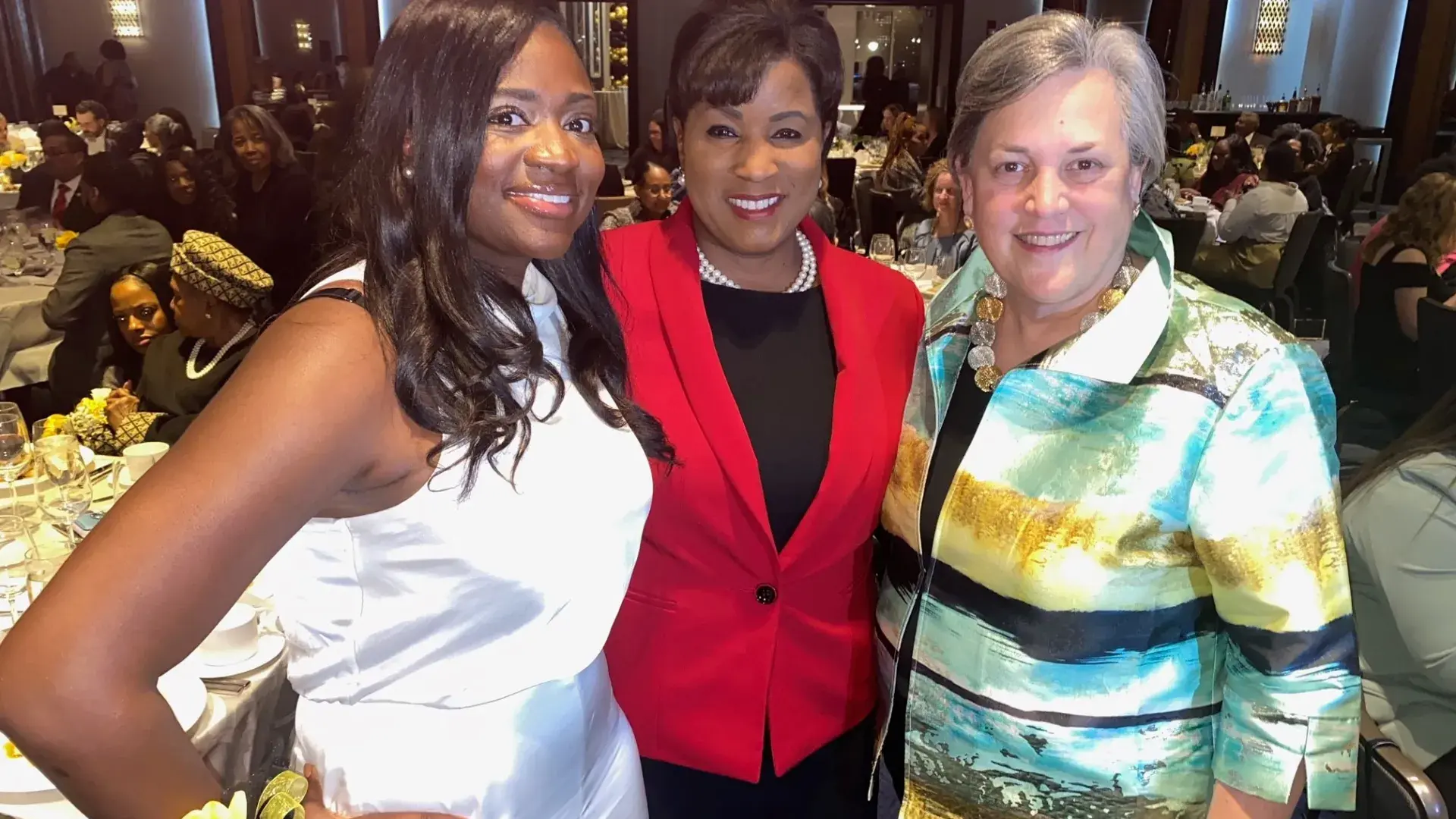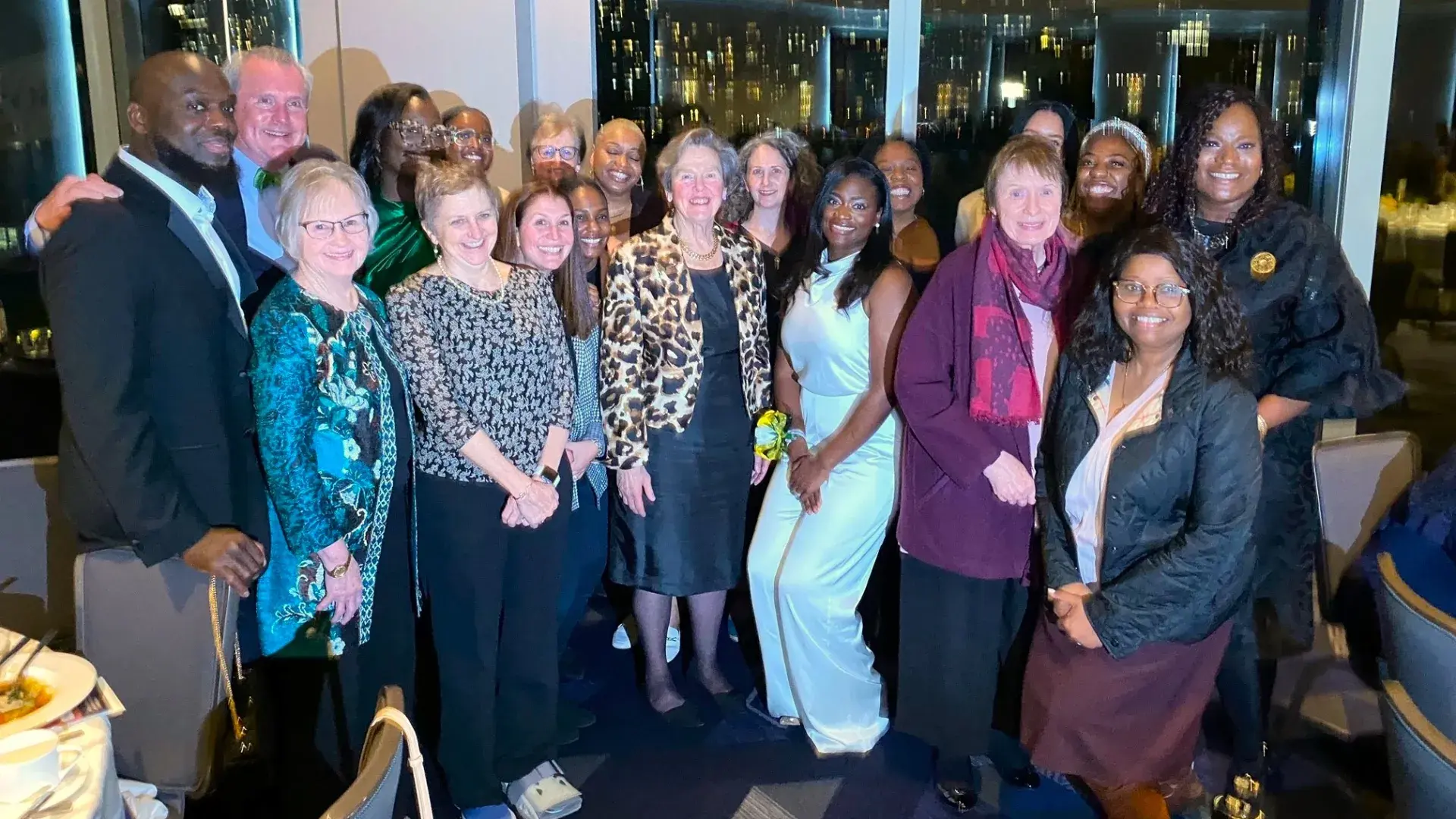
Organization also awards her Presidential Award for contributions stretching more than a decade
When Cassandra Mombrun enters a classroom at the MGH Institute, the 17-year nursing veterans feels at home.
“It's what I love, it's what I do best,” says Mombrun, an instructor in the School of Nursing. “It comes naturally to me. When I'm in the classroom and looking at the students, I just go back to that place where I was a student, too.”
For three years, Mombrun was the nurse director at Brigham and Women's Hospital for an inpatient thoracic surgery unit, a demanding job where she oversaw a staff of 150 people and was in regular contact with senior nursing leadership and various doctors. But soon after having her son and returning from maternity leave, her priorities changed.
“I had two cell phones, a pager, two laptops. I was never available to my family,” recalls Mombrun. “I couldn't keep up with work and family. I was at a point where it wasn’t fulfilling. But I just didn't see my husband. I didn't see my son.”
Family won out, and Mombrun left her position. After taking some time off to reassess, she applied for a teaching position at the IHP, one focusing on her specialty – pediatrics.
Last week at the New England Regional Black Nurses Association’s 36th Annual Excellence in Nursing Awards, Mombrun’s career pivot was validated when she won its Education/Teaching award.
“Winning the award definitely affirms for me that I did make the right decision,” said Mombrun, who initially was surprised at getting the award. “But then as I think about it a little more, I’m not surprised. My teaching style is really unique; I really build on my narrative and stories, and the students love it. I think my bedside nursing experience has been very unique, and I bring that into the classroom every day.”
Mombrun keeps her nursing skills sharp by working per diem at Boston Children’s Hospital, where she has spent the majority of her career.
“It's in telling those stories and relating them to what we're learning in the classroom that makes a difference. Sometimes I can teach a whole class based off of one story and unfold the story, bring it back to what they're learning.”
“Her efforts go way beyond the classroom,” said Dr. Ken White, dean of the School of Nursing. “She's a wonderful advocate for health equity, focusing her teaching on the social determinants of health and how nurses are able to make a difference with socially disadvantaged persons and communities who have experienced healthcare disparities. I would consider Cassandra a quiet giant. She goes about things in a very quiet and professional way, yet her impact is huge with our students.”
As if the Education/Teaching award wasn’t enough, Mombrun also won the New England Regional Black Nurses Association’s (NERBNA) Presidential Award, the most prestigious honor bestowed by the organization.
“I'm very humbled really to receive the award,” said Mombrun, “and honored too with so many colleagues and friends in the audience.”
Mombrun said she understood why she was the recipient. A thirteen-year affiliation with NERBNA that’s included a rise up the organizational ladder from member to secretary to board member to her current role as vice president. Ten years in leadership where tough decisions were made helped propel the organization forward.
“When I started, we had about three scholarships and now we have nine scholarship assistance programs for nursing students,” she notes. “We've developed new partnerships with different organizations that want to donate to us. We have a new health policy committee on our board. I've grown up with the organization, I've watched it grow, and I've been part of the decision making in terms of the best steps for NERBNA. We're busy. People want to hear what we have to say. We give educational opportunities. We also highlight our members who are doing doctoral work or doing work in the community.”
The IHP’s history with NERBNA is tangible. E. Lorraine Baugh, an IHP long-serving trustee and first chair of the Institute’s Board of Trustees, organized the first meeting of what is now known as the New England Regional Black Nurses Association. The IHP’s relationship is a key asset – for the organization, which just celebrated its 50th year – and for students.
“One of the core values of the IHP is inclusivity - it’s justice, equity, diversity, and inclusion,” said Mombrun. “Having an organization like NERBNA be connected to the IHP gives a sense of importance and impact on the students of color. Knowing that the School has a relationship with this organization will give them confidence and will let them know that the Institute and NERBNA share similar values, and that's exactly what students want to see. It’s one thing to say you’re committed to diversity and inclusion but it’s another to do it.”
Do you have a story the Office of Strategic Communications should know about? If so, let us know.



